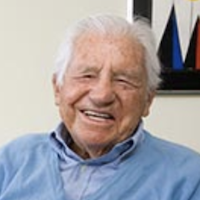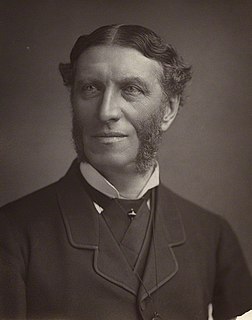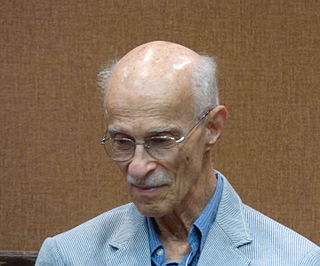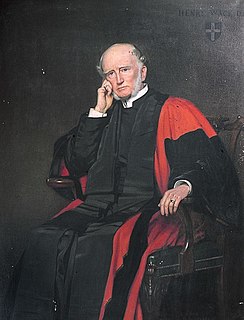 W
WMeyer Howard "Mike" Abrams, usually cited as M. H. Abrams, was an American literary critic, known for works on romanticism, in particular his book The Mirror and the Lamp. Under Abrams's editorship, The Norton Anthology of English Literature became the standard text for undergraduate survey courses across the U.S. and a major trendsetter in literary canon formation.
 W
WMatthew Arnold was an English poet and cultural critic who worked as an inspector of schools. He was the son of Thomas Arnold, the celebrated headmaster of Rugby School, and brother to both Tom Arnold, literary professor, and William Delafield Arnold, novelist and colonial administrator. Matthew Arnold has been characterised as a sage writer, a type of writer who chastises and instructs the reader on contemporary social issues. He was also an inspector of schools for thirty-five years, and supported the concept of state-regulated secondary education.
 W
WRobert Charles Asch is a British Catholic writer and scholar.
 W
WMargaret Eleanor Atwood is a Canadian poet, novelist, literary critic, essayist, teacher, environmental activist, and inventor. Since 1961, she has published 18 books of poetry, 18 novels, 11 books of non-fiction, nine collections of short fiction, eight children's books, and two graphic novels, and a number of small press editions of both poetry and fiction. Atwood has won numerous awards and honors for her writing, including two Booker Prizes, the Arthur C. Clarke Award, the Governor General's Award, the Franz Kafka Prize, Princess of Asturias Awards, and the National Book Critics and PEN Center USA Lifetime Achievement Awards. A number of her works have been adapted for film and television.
 W
WKarl E. Beckson was an American educator, scholar, and author of numerous articles and sixteen books on British literature, culture, and authors including Oscar Wilde, Arthur Symons, and Henry Harland. Of particular interest to him was the late 19th century Symbolist Movement and its influence on late 19th century and early 20th century authors including James Joyce, D.H. Lawrence, and Bernard Shaw. He co-authored, with Arthur Ganz, Literary Terms: A Dictionary, first published in 1960, and still available in its extensively revised 1990 third edition.
 W
WHarold Bloom was an American literary critic and the Sterling Professor of Humanities at Yale University. In 2017, Bloom was described as "probably the most famous literary critic in the English-speaking world." Following the publication of his first book in 1959, Bloom wrote more than 50 books, including over 40 books of literary criticism, several books discussing religion, and a novel. During his lifetime, he edited hundreds of anthologies concerning numerous literary and philosophical figures for the Chelsea House publishing firm. Bloom's books have been translated into more than 40 languages.
 W
WBrian David Boyd is a professor of literature known primarily as an expert on the life and works of author Vladimir Nabokov and on literature and evolution. He is a University Distinguished Professor in the Department of English at the University of Auckland, New Zealand.
 W
WFrancis Brinkley was an Anglo-Irish newspaper owner, editor and scholar who resided in Meiji period Japan for over 40 years, where he was the author of numerous books on Japanese culture, art and architecture and an English-Japanese Dictionary. He was also known as Frank Brinkley or as Captain Francis Brinkley and was the great uncle of Cyril Connolly.
 W
WMary Fair Burks was an American educator, scholar, and activist during the Civil Rights Movement from Montgomery, Alabama. Burks founded the Women’s Political Council in 1946, which helped initiate the Montgomery Bus Boycott following the arrest of Rosa Parks in 1955.
 W
WRobert Burns, also known familiarly as Rabbie Burns, the National Bard, Bard of Ayrshire, the Ploughman Poet and various other names and epithets, was a Scottish poet and lyricist. He is widely regarded as the national poet of Scotland and is celebrated worldwide. He is the best known of the poets who have written in the Scots language, although much of his writing is in a "light Scots dialect" of English, accessible to an audience beyond Scotland. He also wrote in standard English, and in these writings his political or civil commentary is often at its bluntest.
 W
WCarol Tecla Christ is an American academic administrator. In March 2017, she was named the 11th Chancellor of the University of California, Berkeley, the first woman to hold that position. She succeeded outgoing Chancellor Nicholas B. Dirks on July 1, 2017.
 W
WSamuel Taylor Coleridge was an English poet, literary critic, philosopher and theologian who, with his friend William Wordsworth, was a founder of the Romantic Movement in England and a member of the Lake Poets. He also shared volumes and collaborated with Charles Lamb, Robert Southey, and Charles Lloyd. He wrote the poems The Rime of the Ancient Mariner and Kubla Khan, as well as the major prose work Biographia Literaria. His critical work, especially on William Shakespeare, was highly influential, and he helped introduce German idealist philosophy to English-speaking culture. Coleridge coined many familiar words and phrases, including "suspension of disbelief". He had a major influence on Ralph Waldo Emerson and American transcendentalism.
 W
WMaureen Corrigan is an American author, scholar, and literary critic. She is the book critic on the NPR radio program Fresh Air and writes for the "Book World" section of The Washington Post. In 2014, she wrote So We Read On, a book on the origins and power of The Great Gatsby. In 2005, she published a literary memoir Leave Me Alone, I'm Reading: Finding and Losing Myself in Books. Corrigan was awarded the 2018 Nona Balakian Citation for Excellence in Reviewing by the National Book Critics Circle for her reviews on Fresh Air on NPR and in The Washington Post, and the 1999 Edgar Award for Criticism by the Mystery Writers of America for her book, Mystery & Suspense Writers, with Robin W. Cook.
 W
WKwame Senu Neville Dawes is a Ghanaian poet, actor, editor, critic, musician, and former Louis Frye Scudder Professor of Liberal Arts at the University of South Carolina. He is now Professor of English at the University of Nebraska-Lincoln and editor-in-chief at Prairie Schooner magazine. New York-based Poets & Writers named Dawes as a recipient of the 2011 Barnes & Noble Writers for Writers Award, which recognises writers who have given generously to other writers or to the broader literary community.
 W
WJerry Farber is an American educator and writer.
 W
WBarbara Foley, Distinguished Professor of English at Rutgers University-Newark, focuses her research and teaching on U.S. literary radicalism, African American literature, and Marxist criticism. The author of six books and over seventy scholarly articles, review essays, and book chapters, she has published on literary theory, academic politics, US proletarian literature, the Harlem Renaissance, and the writers Ralph Ellison and Jean Toomer. Throughout her career, her work has emphasized the centrality of antiracism and Marxist class analysis to both literary study and social movements.
 W
WHerman Northrop Frye was a Canadian literary critic and literary theorist, considered one of the most influential of the 20th century.
 W
WSir Granville George Greenwood, usually known as George Greenwood or G. G. Greenwood, was a British lawyer, politician, cricketer, animal welfare reformer and energetic advocate of the Shakespeare authorship question.
 W
WMarianne Hirsch is the William Peterfield Trent Professor of English and Comparative Literature at Columbia University and Professor in the Institute for Research on Women, Gender, and Sexuality.
 W
WLeon Kellner was an English lexicographer, grammarian, and Shakespearian scholar. He was also a political activist and a promoter of Zionism.
 W
WClive Staples Lewis was a British writer and lay theologian. He held academic positions in English literature at both Oxford University and Cambridge University. He is best known for his works of fiction, especially The Screwtape Letters, The Chronicles of Narnia, and The Space Trilogy, and for his non-fiction Christian apologetics, such as Mere Christianity, Miracles, and The Problem of Pain.
 W
WJames F. Light (1921-2002) was an American literary scholar, university vice president, and provost. During his academic career, he helped revive the works of satirist Nathanael West, with the first book length critical study of his work, Nathanael West: An Interpretive Study,. He was also the leading authority on John William De Forest, the early American realist whose work he critiqued in John William De Forest, and he wrote extensively on J. D. Salinger, Robert Penn Warren and others.
 W
WChristopher Looby is an American literary critic specializing in 18th and 19th century American literature. He is a Professor of English at UCLA.
 W
WHerbert Marshall McLuhan was a Canadian philosopher, whose work is among the cornerstones of the study of media theory. Born in Edmonton, Alberta, and raised in Winnipeg, Manitoba, McLuhan studied at the University of Manitoba and the University of Cambridge. He began his teaching career as a professor of English at several universities in the United States and Canada before moving to the University of Toronto in 1946, where he remained for the rest of his life.
 W
WAzar Nafisi is an Iranian-American writer and professor of English literature. Born in Tehran, Iran, she has resided in the United States since 1997 and became a U.S. citizen in 2008.
 W
WCarroll Quigley was an American historian and theorist of the evolution of civilizations. He is remembered for his teaching work as a professor at Georgetown University, and for his writing about global conspiracies, in which he argued that an Anglo-American banking elite have worked together for centuries to spread certain values globally.
 W
WCharles Ruas is an American author, translator, literary and art critic, and interviewer. He lives and works in New York City.
 W
WWilliam C. Stokoe Jr. was an American linguist and a long-time professor at Gallaudet University. His research on American Sign Language (ASL) revolutionized the understanding of ASL in the United States and sign languages throughout the world. Stokoe's work led to a widespread recognition that sign languages are true languages, exhibiting syntax and morphology, and are not only systems of gesture.
 W
WCharles Blacker Vignoles was an influential British railway engineer, and eponym of the Vignoles rail.
 W
WHenry Wace was an English Anglican priest and ecclesiastical historian who served as Principal of King's College, London, from 1883 to 1897 and as Dean of Canterbury from 1903 to 1924. He is described in the Dictionary of National Biography as "an effective administrator, a Protestant churchman of deep scholarship, and a stout champion of the Reformation settlement".
 W
WMichael Wilding is a British-born writer and academic who has spent most of his career at the University of Sydney in Sydney, Australia. He is known for his work as a literary scholar, critic, and editor. Since 2002 he is Emeritus Professor in English and Australian Literature at the University of Sydney.